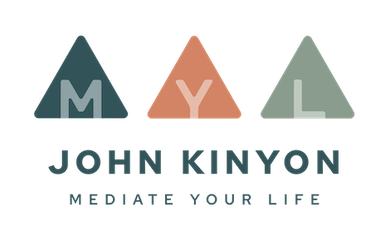Our Afghan Story Revisited
Close to 20 years ago I went to Pakistan with my close colleague Ike Lasater to work with Afghan tribal elders in a refugee camp along the border. It was January 2002, soon after the 9/11 terrorist attacks in the U.S. and our bombings and invasion of Afghanistan. It was a particularly dangerous time for Americans to go to that part of the world, yet for reasons I can only understand in hindsight we went despite the very strong warnings being put out by the U.S. State Department.
This decision to go despite all common sense to the contrary turned out to be one of those life altering experiences. It became my origin story of the work I’ve done ever since, of bringing empathic communication into conflict situations and conversations. I have told this story of Ike and my adventure together countless times. However, in light of recent events around the U.S. withdrawal of military forces in Afghanistan and the ensuing chaos, I realize I want to tell a different version of the story.
The story as I have always told it was about two naive Americans going into a refugee camp and ending up mediating a conflict situation between Afghan elders in a moving way using skills of Nonviolent Communication (NVC). A part of the story that I haven’t always included is now what I think is the more important aspect. In long flowing beards and robes, thirty or so elders from different tribes and from different parts of the Shamshatoo camp region came to meet with us over a three day period.
With the help of our translator Abad we at first tried to get across the idea that we were there to offer training in Nonviolent Communication skills. This made no sense to them. What they did want to talk with us about was their deep anger and pain in relation to foreign countries’ devastating involvement in their country. In their eyes we represented the United States and they wanted to be seen and heard. So, that’s what we did for two full days, listened and reflected back to them what we heard, especially their feelings and their needs for empathy, care, respect, trust, integrity, honesty, to matter and be seen, and many more tragically unmet needs.
Through steep challenges translating a multitude of different languages and dialects being spoken, we could tell when empathic communication and connection was happening between us and them. The urgency and intensity of their voices and body language would subside, like the enormous energy of an ocean wave being received by the shore. Their eyes and faces would soften. At times tears would well up in their eyes, followed by periods of stillness and quiet. And then another wave of pain would well up, demanding to be expressed, and heard. Hearing this pain we too were moved to tears, our hearts broken open. When they were done telling us what they wanted us to hear, we asked if they wanted to hear from us. They said yes, and we expressed our great sorrow hearing all they had been through and our government’s role in their tremendous suffering.
Witnessing what is now happening in Afghanistan and seeing with new eyes what has been going on there for many decades, it is this simple yet profound part of our story that seems to me most relevant. We went there to share skills we had found so valuable in our lives, but it was we who had learning to do first, and it was only after there was enough human connection between us that there was the trust to receive what we had to offer, which turned out to be allowing us to mediate a conflict between them that arose in the group while we were together using empathic communication.
The lesson I see to apply to what is happening now is for us all to not remain in our heads in what we believe and how we judge right and wrong, what should or shouldn’t have been done. The learning is to continually drop awareness and attention down into our bodies and emotions, and deeper still to what we all want as human beings. Can we move towards each other in our differences and disagreements with empathic understanding, and then down through the heart to the center of our being where we touch and connect to the universal in each of us? This is what the elders taught us, what needs to happen before we can move forward together.
